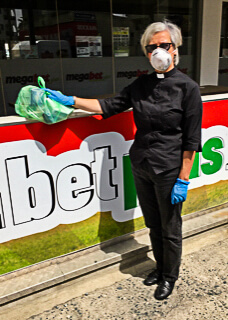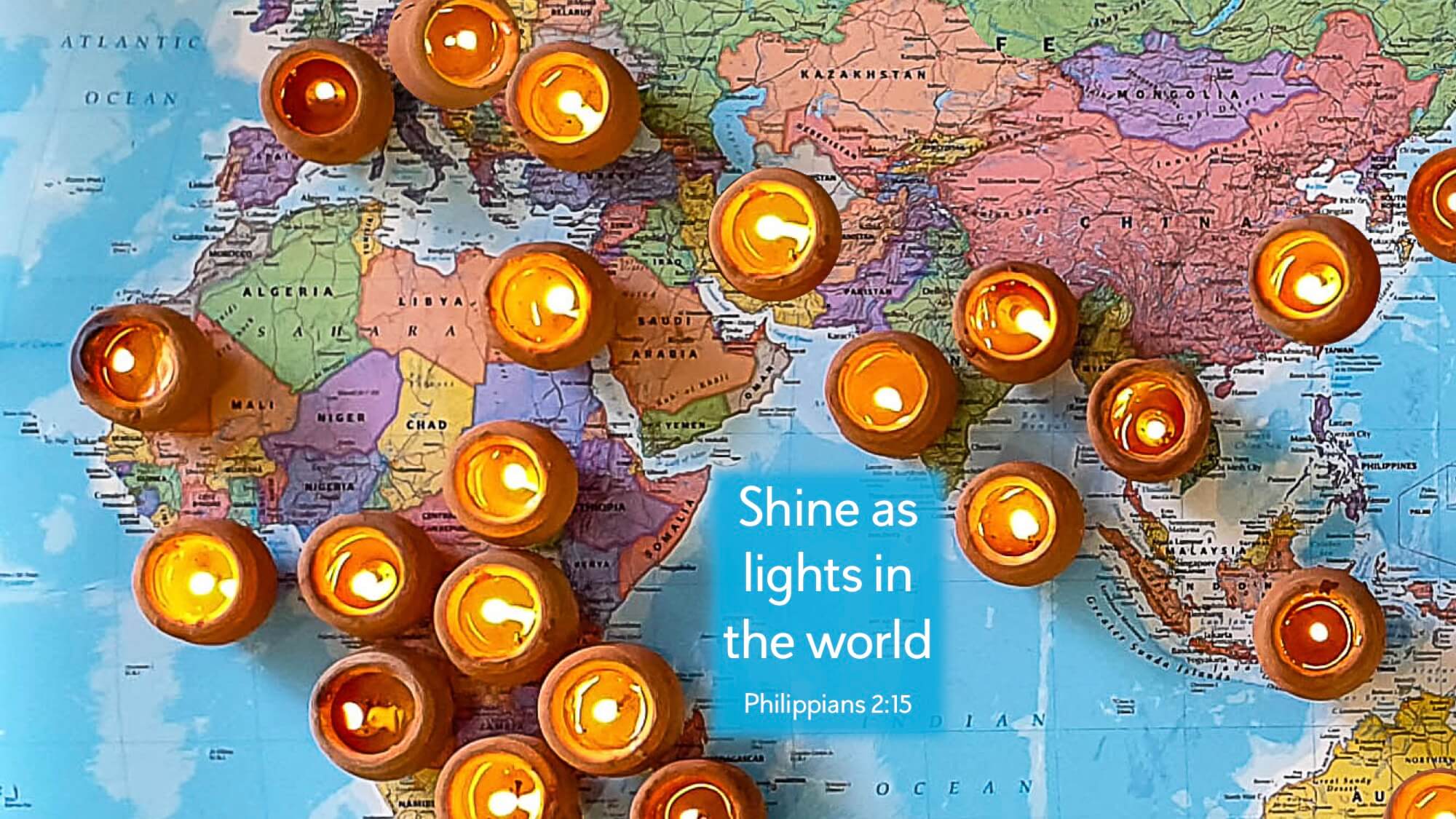“Thank you so much for the lovely call yesterday. It was so good to hear what’s happening around the region. God is so faithful! These ‘gatherings’ are little tastes of heaven on earth, glorifying God for what He is doing and has done.” – Evangelical Church representative, UAE
On 30th April, participants from the Province of Jerusalem and the Middle East, as well as representatives from other Christian traditions in the region, took part in an online call to share their experiences of COVID-19 and their churches’ responses to the pandemic. The call was convened by Joel Kelling, the Anglican Alliance’s Middle East facilitator. The group was born out of those who gathered in January 2020 for a Safe Migration consultation for the Gulf, but has grown to include Anglicans from the island of Cyprus and the Diocese of Jerusalem.
Two major themes emerged on the call: the challenges facing the churches themselves and the impact on vulnerable people across the region – as well as the response the church has been able to provide.
Whilst the range of vulnerable people who have been affected is wide (including migrant labourers, asylum seekers and refugees), the ways in which people have been affected is remarkably similar. Lockdown conditions, which are being enforced in similar ways across the region, mean that those who are not allowed to work are unable to support their families.
In the case of refugees in Jordan, Iraqis are particularly vulnerable. They were unable to work legally before COVID-19 and were instead reliant on wages earned as day labourers. This work has completely dried up under curfew.
Across the Gulf, many migrant workers have been unable to work, or have lost their jobs. Reports are emerging that despite government schemes to cover the costs of pay for employees who are currently unable to work, a number of employers are not paying their staff. In addition to the hardship this creates for the migrant workers themselves, it also means that remittances are not being sent home to families reliant on this income. Even where the church and others are able to provide food, this doesn’t relieve the vulnerability of those at home.
Elsewhere, it was reported that many migrant workers were continuing to work, without adequate protection from the viral threat. Workers typically live in dormitory accommodation, with eight to twelve people per room, allowing for easy spread of the virus.
Additionally, countries across the region have been attempting to repatriate workers, both willingly and forcibly. We heard positive stories of intervention by the government of Pakistan to help repatriate its citizens, as well as the Kuwaiti government cancelling outstanding fines for overstayed visas and paying to return migrant workers home.
As people shared their experiences and concerns, the numerous ways churches across the region are responding to the growing needs in their communities emerged.
Churches have responded creatively to the needs of their parishes and the wider community around them. People’s engagement with their faith has increased, with clergy providing daily devotions to their communities, and receiving positive engagement in response.
At a diocesan level, Archbishop Suheil, Anglican Archbishop in Jerusalem, has committed to continue paying the full salaries of the staff of the approximately thirty diocesan institutions, which include two hospitals in Gaza and Nablus, schools (including the Holy Land Institute for the Deaf) and rehabilitation centres (such as St. Luke’s in Lebanon). This commitment to honouring contracts, when governments have permitted salary reductions and when the economic outlook for the church is uncertain, is a positive display of love and care, and of trust that God will provide. Both the Dioceses of Cyprus and the Gulf and Jerusalem have lost revenue on top of that missing from church collections. In the Gulf, the Anglican church hosts large numbers of other churches on its premises, and revenue from that has disappeared with the closure of worship spaces. Similarly, in the Diocese of Jerusalem, the absence of pilgrims and students from its guesthouses, churches and college may have a serious impact in the future.

Distributing food to families, Cyprus
Across the Province of Jerusalem and the Middle East, the church has responded to human need with loving kindness, through the provision of food packages or coupons to migrant labourers in Doha and Abu Dhabi, and the same for vulnerable parishioners in Nazareth. For additional examples of responses in the region, please read these stories in the Anglican Alliance COVID-19 resource hub (see here).
One participant spoke of how their established relationships with migrants living in labour camps have proven invaluable in the current crisis. After the call they wrote up what they had shared, saying, “We are thankful to have connections in several men’s and women’s company accommodations that have allowed for continued communication during the crisis. The ladies’ accommodations and men’s camps have proven fertile ground for previously developing/established leaders (even if they weren’t feeling ready to lead) to step up and lead times of prayer and study as well as relief efforts. These leaders have also been our contacts to know what type of support is needed: encouragement, access to study materials, food, medicine, etc.
“One of the men’s leaders has continued leading weekly Bible studies while also rounding up others in his camp to deliver food (on his bike) to surrounding camps with great need.
“We are thankful that one ladies’ accommodation that was really struggling with lack of access to food due to the lock down, after receiving several food deliveries, is now receiving a company food allowance as well as freedom to get what they need! One company of cleaners is now sending their ladies back to work and has continued to pay them! The supervisor at another lady’s accommodation has received supermarket food vouchers from generous members at a local fellowship to sustain 100+ ladies while not being paid! Lastly, though most relief work is reserved for the official government entities, we are thankful that our local government has given our fellowship permission to continue food deliveries all over the city to groups of people in need.
“We are praising God for the many creative ways He is answering the prayers of many calling out for His great mercy. He is all powerful, endlessly loving, and completely faithful!!”
Joel Kelling reflected on the consultation, saying, “It has been really encouraging to continue the conversations begun in January through the Safe Migration consultation, which has brought an ecumenical group of Christians from the Middle East and from East Africa and South Asia together. It is even better that through an online presence, the Province of Jerusalem and the Middle East, which is so geographically vast and culturally diverse is able to share in fellowship and prayer together, building friendship and learning together.
“I sincerely hope that these regional gatherings continue to have a real impact on the capacity of the church to respond creatively to those in need at this time, and forge bonds that last beyond the current crisis and which lead to a real outworking of the Five Marks of Mission.
“So much of what we are able to achieve now is preventing malnutrition and hunger, but I hope we are able to work together to help build thriving communities in the future. As a group it is almost impossible to gather in person across the territories encompassed by the call, so it is good news when we can in these situations perceive a little more the diversity of the Body of Christ.”
Please pray for migrant workers and other people away from their homes at this difficult time and for those seeking to reach out to them.
See our COVID-19 resource hub for information about COVID-19 and how churches can respond, including practical tips on how churches can respond to the needs of migrants and refugees.

